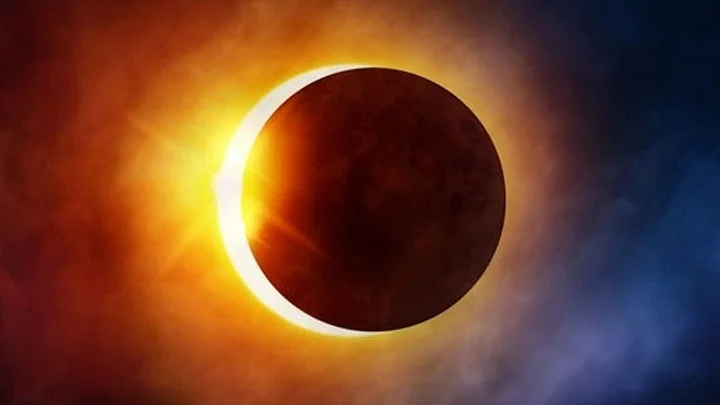Diwali is over and the very next day, that is today 25 October, we will witness a partial solar eclipse in different parts of the world. India will witness the solar Eclipse which will also be visible in the regions of Europe, West Asia, the northeastern parts of Africa, the North Atlantic Ocean, and the North Indian Ocean.
As per reports, the solar eclipse will begin before sunset and may be visible from various parts of the country.
A Solar Eclipse occurs on a New Moon day when the Moon, Earth, and sun come in a straight line and the moon is in between the sun and the Earth. A partial solar eclipse happens when the Moon covers the sun but partially. Today, we will discuss the timings of the solar eclipse in various cities, as well as when, where, and how to watch the Surya Grahan.
Solar Eclipse 2022: Date & Time
The Solar Eclipse will occur today, Tuesday, 25 October 2022. This will be the second solar eclipse of the year.
As per the Drik Panchang, the partial Solar Eclipse will be visible from 04:29 PM to 05:42 PM, and the maximum eclipse time will be at 05:30 pm.
Surya Grahan 2022: When & Where to Watch
The timings of the solar eclipse in different cities is as follows:
New Delhi: 04:28 PM to 05:42 PM
Mumbai: 04:49 PM to 06:09 PM
Hyderabad: 04:58 PM to 05:48 PM
Bengaluru: 05:12 PM to 05:56 PM
Chennai: 05:13 PM to 05:45 PM
Kolkata: 04:51 PM to 05:04 PM
Bhopal: 04:42 PM to 05:47 PM
Chandigarh: 04:23 PM to 05:41 PM
The partial Solar eclipse will be visible for the longest time in Dwarka, Gujarat and it will be for 1 hour 45 minutes. Kolkata will witness the shortest duration of the solar eclipse which will be for 12 minutes.
The Ministry of Earth Science informed us that the end of the eclipse will not be visible from India as it will be in progress after sunset.
How to Watch the Solar Eclipse 2022?
According to health professionals, we should not watch the solar eclipse with the naked eye since it can be harmful. If you really want to watch the eclipse, use special eye protection or indirect methods (never watch the solar eclipse directly).
You can use a telescope, pinhole camera, or camera display to watch the eclipse. If you view the solar eclipse directly, it may cause permanent damage to your eyes due to the high-density radiation from the sun's photosphere.
(At The Quint, we question everything. Play an active role in shaping our journalism by becoming a member today.)
